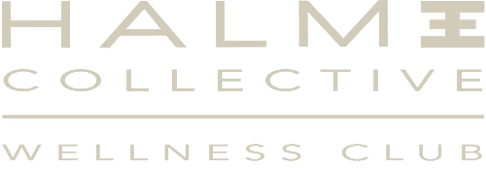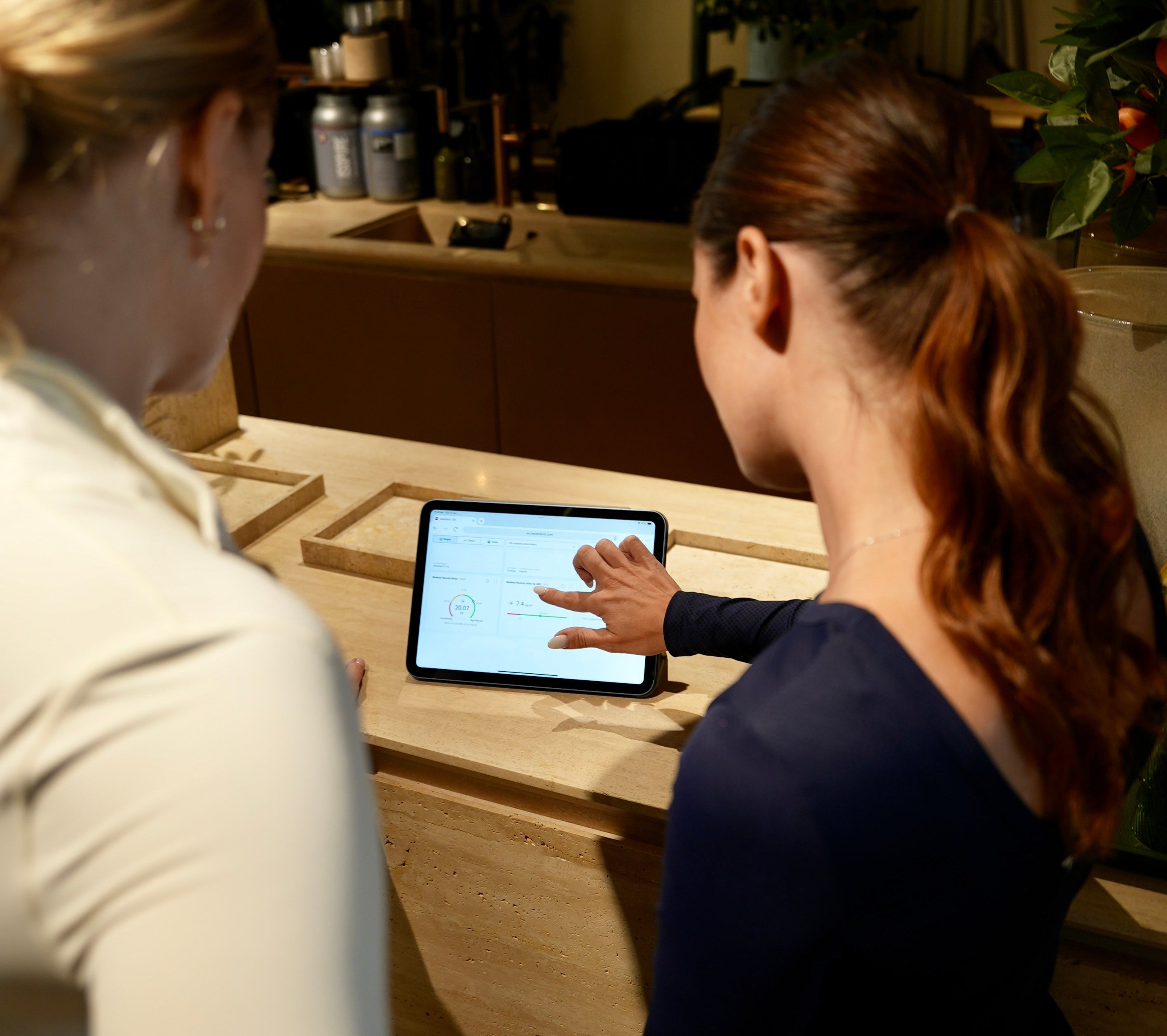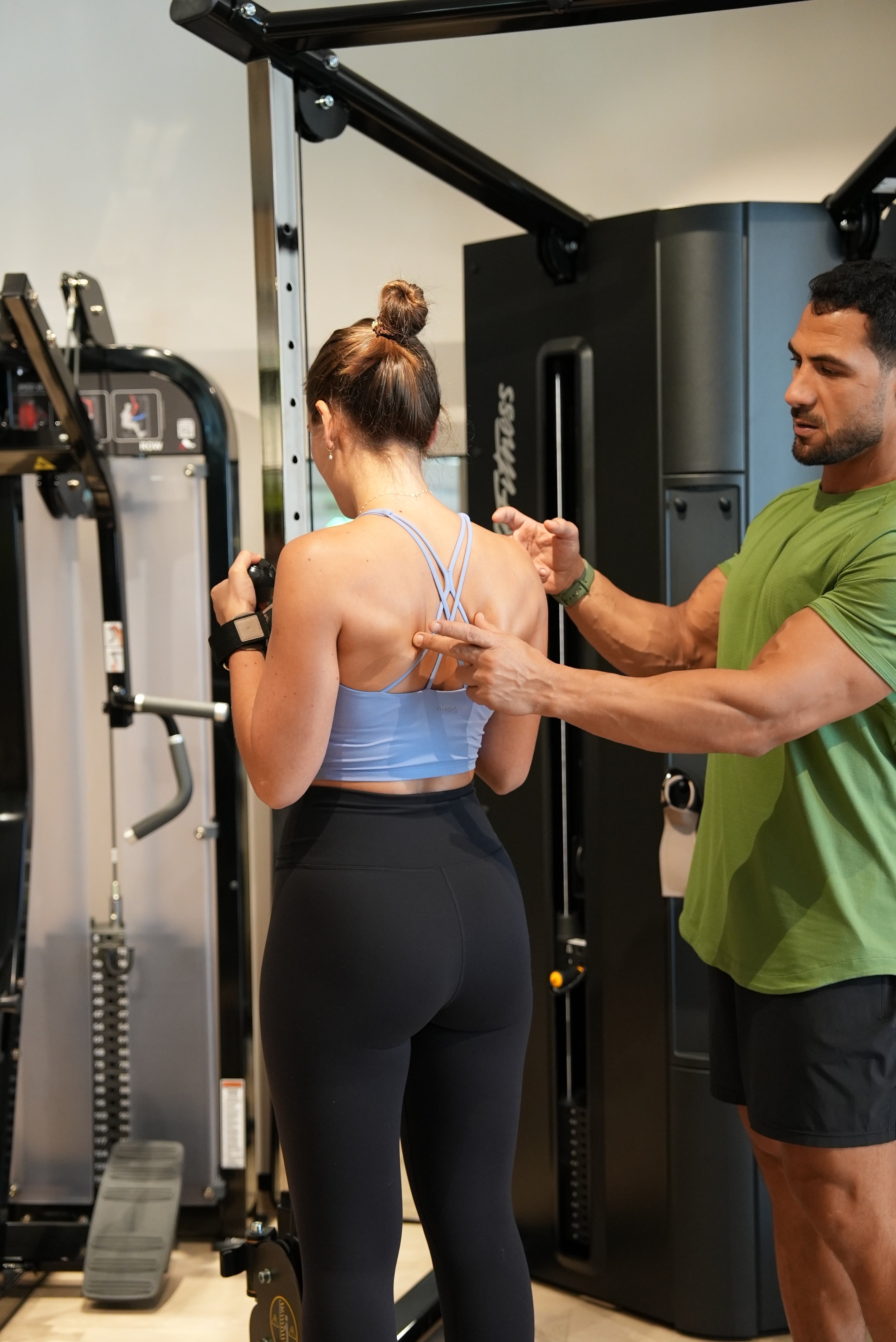Body Composition Testing: Scales, Calipers, BIA Compared

Step on a home scale and you will see a number. But that number alone doesn’t reveal much about your health. Two people can weigh the same, yet one could have more muscle, less fat, and a completely different hydration status.
That’s where body composition testing comes in, giving you a clearer picture of what’s really happening beneath the surface.
Over the years, different tools have been developed to measure body composition. Some are scientific “gold standards,” while others are more practical for everyday use.
Here’s how the most common methods stack up, and why SECA changes the game in a Personal Training setting like HALM.
Home Scales: Simple but Misleading
What they do: Show total body weight only.
Pros:
● Cheap, quick, and easy to use daily
● Helpful for tracking general weight trends
Cons:
● Don’t distinguish between fat, muscle, or water
●. Can give a false sense of progress (or lack of it)
A home scale can tell you if your weight is changing, but not what kind of weight is changing.
Skinfold Calipers: A Classic but Imperfect Tool
What they do: Pinch the skin at different body sites (arms, abdomen, thighs) to estimate body fat percentage.
Pros:
● Low cost and widely available
● Portable and quick to use
●. Can track changes in fat levels over time if done consistently by the same trained professional
Cons:
● Accuracy depends on the tester’s skill - even small differences in pinching technique can affect results
● Different formulas, different outcomes - various equations (Jackson & Pollock, Durnin-Womersley, 3-site, 7-site, etc.) are used to convert skinfolds into a body fat percentage, and each can give slightly different results
● Only measures body fat. Provides no insight into muscle mass, hydration, or distribution
● Some people find the process awkward or uncomfortable
In short, calipers can be useful for trend tracking in the right hands, but they have clear limitations compared with more modern methods.

BIA Technology: From Basic Devices to the SECA
What it does: Sends a harmless electrical current through the body. Because fat, muscle, and water conduct electricity differently, the device can estimate their proportions.
Pros (standard BIA):
● Quick, non-invasive, and easy to repeat
● Widely available in gyms and homes
Cons (standard BIA):
● Accuracy varies depending on device quality
● Results can be influenced by hydration, food intake, and even time of day
● Cheaper versions often give inconsistent results
BIA is a step above home scales, but accuracy matters.
The SECA Advantage
At HALM, we use the SECA TRU Ultra, a medical-grade BIA device trusted in clinical and research settings. Unlike home or handheld devices, it provides:
● Segmental muscle mass (arms, legs, trunk)
● Body fat percentage & distribution
● Water balance (intra- & extracellular)
● Cellular health indicators
● Accuracy approaching 98% compared with MRI
Why it works: The seca TRU Ultra delivers research-level precision in just a few minutes. It’s non-invasive, comfortable, and provides a detailed report that’s actually useful for guiding training and nutrition decisions.
|
Method |
What It Measures |
Pros |
Cons |
|
Home Scale |
Total body weight only |
Cheap, quick, easy to use at home |
No info on fat vs. muscle, hydration, or health markers; misleading progress tracking |
|
Skinfold Calipers |
Estimates body fat % from pinched skin at set sites |
Low cost, portable, long history of use |
Accuracy depends on tester skill, multiple formulas give different results, only measures fat %, can feel invasive |
|
Standard BIA (Home/Gym Devices) |
Estimates fat, muscle, and water via electrical current |
Quick, non-invasive, more informative than weight alone |
Accuracy varies widely, affected by hydration, cheap models give inconsistent results |
|
seca TRU Ultra (Medical-Grade BIA) |
Segmental muscle mass, body fat %, water balance, cellular health |
Near-clinical accuracy (≈98% vs MRI), non-invasive, detailed report, fast and repeatable, practical for training & nutrition |
Not widely available. Found in clinics and premium studios like HALM |
The Takeaway
If you are serious about improving your health, strength, or body composition, it’s time to go beyond the home scale.
At HALM, our SECA TRU Ultra bridges the gap between science and everyday training, giving you research-level insights in a way that’s fast, practical, and tailored to your fitness journey.
Book your complimentary consultation today and experience your own seca TRU Ultra body composition analysis - the most accurate way to track fat, muscle, and health outside a lab.










